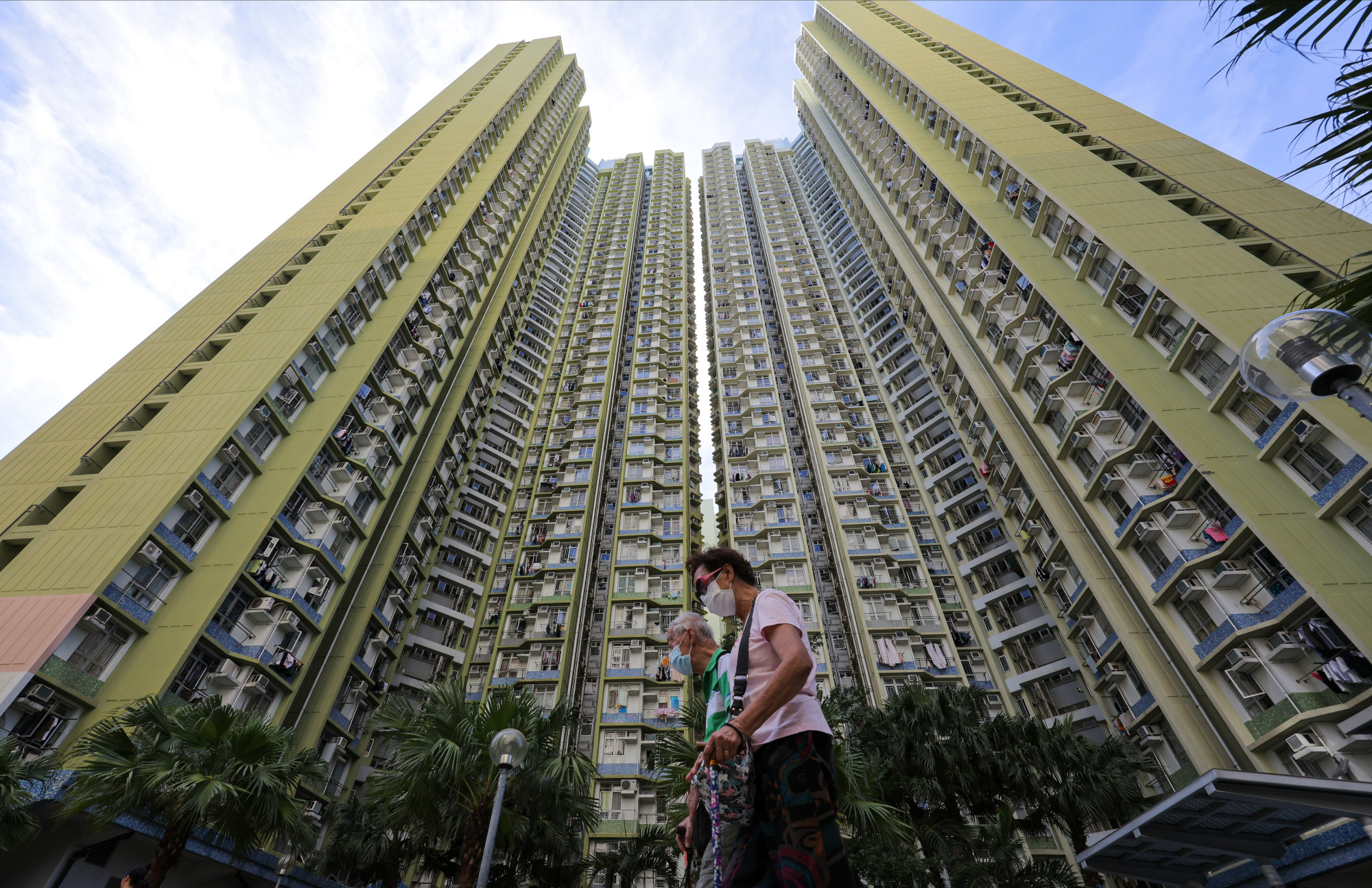Talks with Guangdong province on permanent cross-border checks system as Hong Kong cracks down on public housing tenants who own homes elsewhere
Ho was speaking on Sunday after a crackdown on cheats launched last October turned up about 60 city tenant households who also owned private property.

“We have engaged with Guangdong authorities to check land records of public housing tenants if it has been reported to us that there is evidence that they own properties in the mainland province,” Ho said in a television interview.
The Housing Department said an earlier case that involved a false declaration was uncovered through liaison with mainland authorities and a public housing flat was taken back on October 31.
Ho added her bureau had followed up on several cases with the Guangdong authorities since last November.
She said city tenant-owned properties found in Guangdong would be considered as assets.
Ho added people with net assets that exceeded the permitted range, which runs from HK$278,000 (US$35,566) to HK$917,000, would be evicted from public housing.
Hong Kong last October introduced tougher policies for well-off tenants, after Kwong Kau, 66, the former father-in-law of murdered model Abby Choi Tin-fung, was found to own a luxury home as well as a subsidised flat in the city.
Hong Kong property management firms asked to expose errant public housing tenants
People who have lived in public housing for less than 10 years were asked to submit declaration forms every two years under the new rules.
Government statistics showed almost 2,100 public housing properties had been reclaimed because of misuse and lease violations by the middle of last month.
Rosanna Law Shuk-pui, the housing permanent secretary, earlier said the authority expected to take back more than 2,200 public housing properties in 2023-24, a new high for recent years.
She added checks would also be carried out on the declaration of assets held by public housing tenants in mainland China and overseas.
Ho on Sunday also mentioned that the government was examining ways to increase the proportion of subsidised housing in a bid to increase income for the Housing Authority.
The main public housing provider is expected to record a deficit of HK$1.17 billion for its public housing operations in the 2024-25 financial year if there are no rent adjustments.
Authorities find nearly 60 Hong Kong public sector households own private homes
The deficit is expected to balloon to HK$4.28 billion by 2027-28.
But Ho said she expected any adjustments would only be made in the latter part of the second five-year phase of the government’s housing supply programme, when the market has more public housing units to offer.
The government earlier said it had identified enough land to build 410,000 public flats, about 100,000 more than its target. It is hoped most of the homes will be completed between 2029-30 and 2033-34.
“The goal to cut public housing waiting time to 4.5 years by 2026-27 will stay unchanged,” Ho said. “So the room to adjust subsidised housing proportion would only emerge at the latter part of the second five-year period.”
The proportion of public housing to government-subsidised flats is 7:3 at present.
The average waiting time for a public rented flat is expected to continue to rise in the first half of this year after the latest figure edged up to 5.6 years, the first increase in more than 12 months.